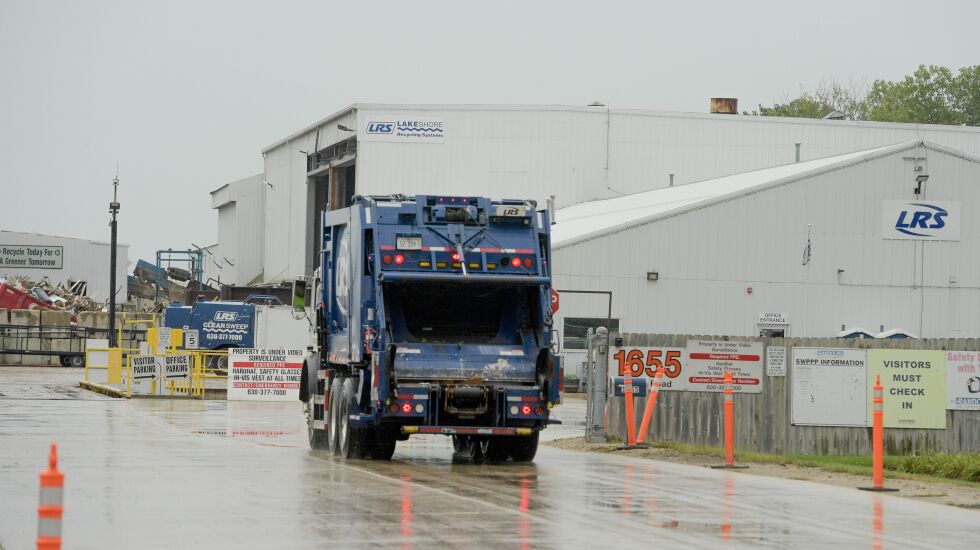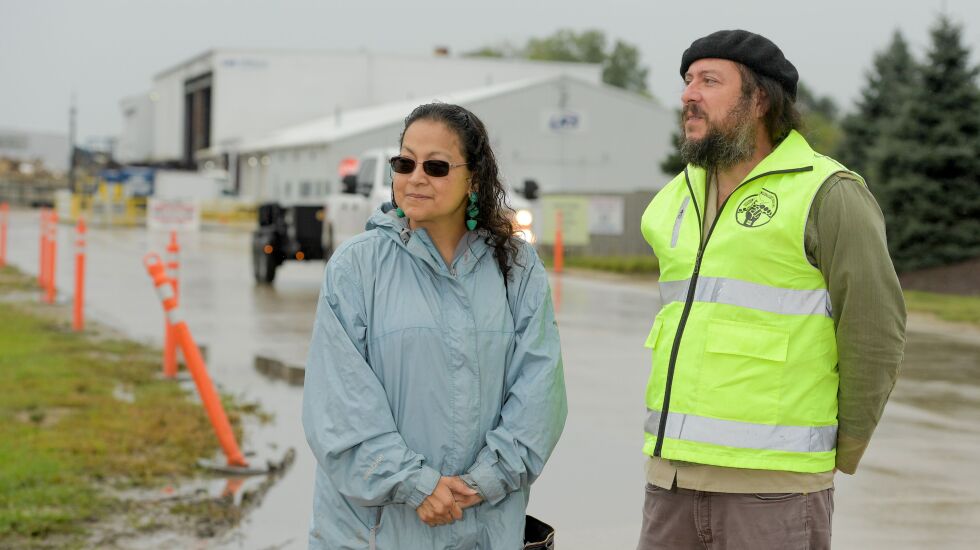
A lawyer for trash-hauler LRS, which is trying to expand in West Chicago amid accusations of racism, blasted opponents of the project and accused them of waging a “culture war” and failing to consider possible benefits of the plan.
LRS won approval from the west suburban city to place a garbage-transfer site — a stop before trash is hauled to landfills.
There is a similar operation just north of the planned LRS site, and some residents of the largely Latino community say they don’t want a second trash facility that would bring in hundreds of trucks and tons of additional garbage from surrounding white communities, including Naperville and Wheaton.
Rosemont-based LRS, formerly called Lakeshore Recycling Systems, still needs final state approval for the site. A board appointed by Gov. J.B. Pritzker will decide its fate by early next year.
“They want to throw us into the culture war,” LRS lawyer George Mueller said at a state hearing Thursday. “Lakeshore is somehow responsible for oppression of the population.”
Mueller challenged opponent Julieta Alcántar-Garcia at the hearing of the Illinois Pollution Control Board, questioning her criticisms about a city process that led to approval of the garbage-transfer site.
Alcántar-Garcia and others complained that city hearings over the matter were done without a translator despite a large number of Spanish-speaking residents. Some residents missed deadlines and weren’t allowed to provide comment, she said.
“I felt we were silenced,” Alcántar-Garcia said.
Mueller asked if Alcántar-Garcia spoke English and whether she was an immigrant since she worked with an organization called Immigrant Solidarity DuPage. She said that she grew up in West Chicago.
“The whole Spanish-language issue is a smokescreen,” Mueller said, adding that Latino-owned businesses he’s visited in West Chicago speak English to their customers.

In an interview Friday, Mueller elaborated on his comments saying “there are clear benefits” to the project and pointed out that the LRS site is in an industrial zone.
“I think the citizens in the community are using identity politics without seeing if the project actually impacts anything,” Mueller said. “Everybody knows pollution-control facilities are considered unpopular land uses, but they’re the price we pay to have a modern society.”
Specifically, the proposed LRS site would receive 650 tons of solid waste a day and would add hundreds of diesel-fuel garbage trucks and other large vehicles weekly.
That would add to already high levels of fine particulate matter pollution, according to Alcántar-Garcia, who used a hand-held air monitor to collect data. She was not allowed to present that information during city hearings earlier this year that ultimately led to the initial LRS approval.
LRS recently opened a recycling facility on the Southwest Side. It’s proposing to expand an existing site in West Chicago that now takes construction debris.
On Thursday, West Chicago officials were grilled by lawyers for residents over decisions to approve a second garbage-transfer site over the objection of some residents.
“There is clearly no need for a second waste-transfer station,” lawyer Ricardo Meza said in his opening statements. “The hearings were a biased farce.”
He asked West Chicago Mayor Ruben Pineda about past attempts to put another trash-transfer station in the city and about private discussions with the company.
More than a dozen times, Pineda responded, “I don’t recall.”
“The decision was predetermined,” Meza said in an interview. “That’s just not right.”
Pineda has said that’s not the case.
West Chicago is at least half-Latino, according to the U.S. Census. Anecdotally, it’s majority-Hispanic, which makes it an outlier in DuPage County, where a number of cities and villages are predominantly white.
The proposed facility would take trash from predominantly white communities and other areas, including Aurora. No other community in DuPage County has even one trash-transfer site.
Robert Weinstock, who represents Alcántar-Garcia and others through Northwestern University’s Environmental Advocacy Center, accuses the city of “structural environmental racism.”
Dennis Walsh, a lawyer defending West Chicago, said the city council made an impartial decision and took its job seriously to make sure the proposed trash operation met criteria established by the state to protect the health of people who live nearby.
Mueller said LRS also took its responsibility to meet the state requirements “very seriously.”
In an interview, Mueller acknowledged learning about environmental justice fights in Chicago but said the LRS proposal is different.
“Part of the problem here is everyone wants to use the term ‘environmental justice,’ and I don’t think they understand what it means,” Mueller said.







